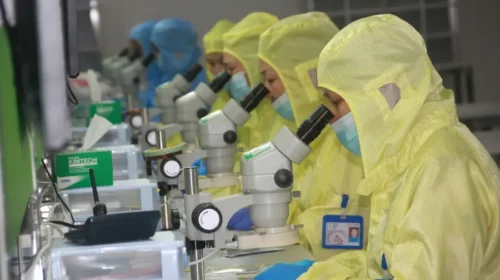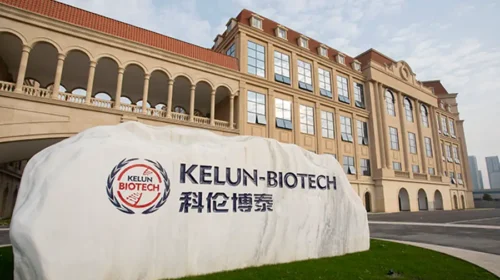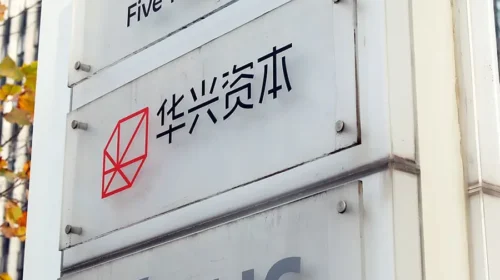A wild ride for TransThera investors: what’s the story?

The firm’s core drug has passed a minor clinical milestone, but the rally really took off when the stock was included in an array of indices tracked by passive funds
Key Takeaways:
- The limited size of TransThera’s free float, at only about 5.5 million shares, has magnified the stock swings
- The company has yet to launch any of its experimental drugs onto the market, constraining revenues and generating multi-year losses
By Molly Wen
A newly listed biotech stock has been the focus of an investor frenzy this month, surging and then plunging in an intense week of outsized price action.
What has been propelling TransThera Sciences (Nanjing) Inc. (2617.HK) on its Hong Kong rollercoaster ride?
Listed less than three months ago, TransThera found itself thrust into the spotlight in the middle of September. Its share price surged more than 550% in just six trading days, pushing the company’s market capitalization briefly beyond the HK$100 billion mark into the same bracket as Hong Kong’s biotech leaders.
Yet after the rapid rise came an equally sharp fall. On Sept. 16 alone, the drug developer’s market value shrank by nearly HK$190 billion ($24.43 billion).
The rally came after news that the company’s key asset, a multi-kinase inhibitor, was on track to enter a Phase Two clinical trial in China as a treatment for recurrent or metastatic breast cancer. TransThera announced on Sept. 10that regulators had designated tinengotinib (TT-00420) as an Investigational New Drug (IND) heading into the trial, to be combined with hormone therapy Fulvestrant for patients with hormone receptor-positive (HR+) and HER2-negative or low expression profiles.
IND approval means that a company is permitted to begin the proposed trial if no objections are raised within a 60-day review period.
Tinengotinib is designed to block tumor activity via several enzymes, targeting the FGFR/VEGFR, JAK and Aurora kinases. According to the company, the drug has the potential to treat cholangiocarcinoma, prostate cancer, breast cancer and other recurrent or drug-resistant solid tumors. U.S. regulators granted the experimental drug Fast Track status in June for use against a type of metastatic prostate cancer.
But obtaining IND approval is not typically regarded as a major milestone for biotech companies and should not be enough to power a more than 50-fold surge in a share price. The more decisive factor was the stock’s rapid entry into multiple major indices, which acted as a magnet for fund allocations into the stock.
On Sept. 8, TransThera was included in the list of companies covered by the Stock Connect programs allowing investors in mainland China to trade in Hong Kong-listed shares. At the same time, it was added to nine Hang Seng indices, including the Hang Seng Composite Index, the Hang Seng Composite SmallCap Index, the Hang Seng Healthcare Index and the Hang Seng Innovative Drug Index. From Sept. 10, a wave of investment inflows powered daily rallies of 27.57%, 20.78% and 77.09% over three straight trading sessions.
Then on Sept. 15, the CNI HK Connect Innovative Drug Index underwent its quarterly rebalancing, adding TransThera as a constituent. The stock surged another 115.58% that day, closing at HK$415 per share.
TransThera is a standard Hong Kong small-cap stock. The company listed on June 23 with an IPO price of HK$13.15 per share and total share capital of around 397 million shares, of which 15.28 million were offered publicly. Five cornerstone investors together subscribed for around 9.77 million shares, subject to a six-month lock-up. After excluding cornerstone and pre-IPO holdings, the actual free float available in the market amounted to just 5.49 million shares.
With a restricted pool of liquid shares, the stock is highly sensitive to concentrated buying or selling. Once the stock was added to the indices, exchange-traded index funds were forced to buy it, generating intense demand that boosted the price.
Still at the research stage
When its market cap broke the HK$100 billion barrier, many market watchers questioned whether TransThera’s drug pipeline could really support such a lofty valuation. The company is a clinical-stage drug developer, founded in 2014 and focusing on small-molecule therapies for cancers, inflammatory conditions and cardiovascular diseases.
Aside from tinengotinib, TransThera has five clinical-stage candidates and several pre-clinical assets, with all its programs still under development and therefore generating no commercial income. Revenues fell 65% in the first half of this year to 3.6 million yuan ($506,000), according to the company’s interim earnings report. The revenue retreat was mainly due to a 4.1 million yuan drop in bank interest and investment income, as well as a 2.7 million yuan fall in government subsidies.
The company has long been stuck in the red, reporting net losses of 343 million yuan in 2023, 275 million yuan in 2024 and 123 million yuan in the first half of 2025. As of June 30, its cash and cash equivalents stood at 449 million yuan, down 21% on a year-on-year basis.
TransThera’s market cap has now shrunk to HK$59 billion, almost 80% below the peak. The Hong Kong market has long shown limited confidence in loss-making biopharma firms, with Genor BioPharma (6998.HK) serving as an instructive example. Listed in 2020 with a value of HK$11.5 billion, the firm now commands a market cap of only HK$2.1 billion.
While TransThera is developing a promising drug, its share price has been subject to speculative hype. Investors should consider taking a cautious approach to the stock.
To subscribe to Bamboo Works weekly free newsletter, click here






